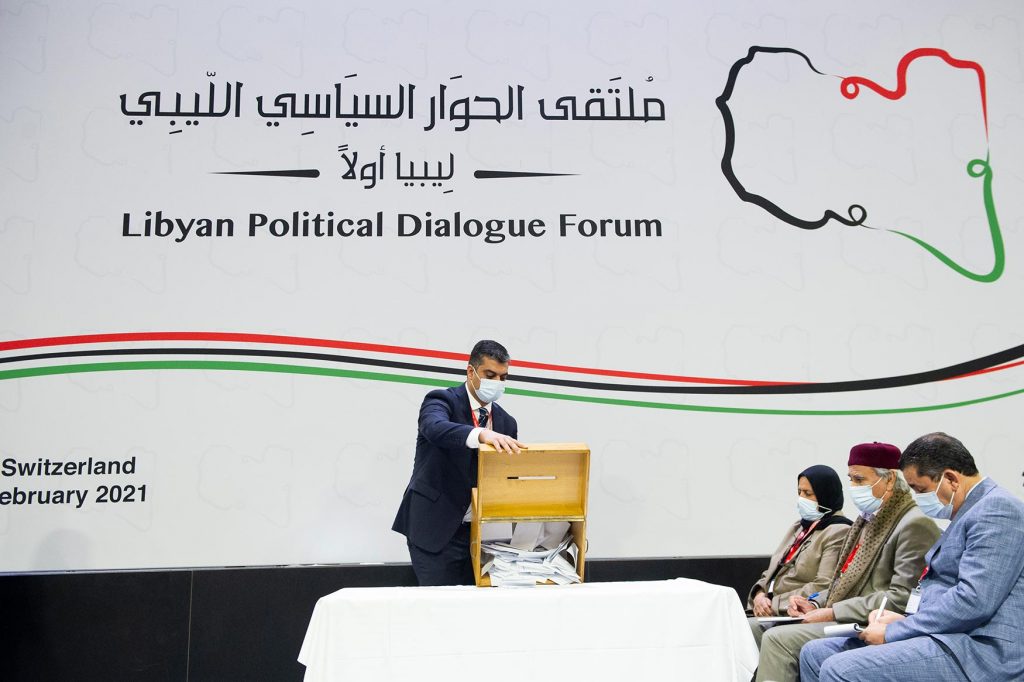Delegates from Libya’s warring factions on February 5 selected four leaders to guide the North African country through to national elections in December in a major – if uncertain – step toward unifying a nation with two separate governments in the east and west.
In what could become a landmark achievement to end one of the intractable conflicts left behind by the Arab Spring a decade ago, the 74 delegates chose a list of candidates in a U.N.-hosted process aimed to give balance to regional powers and various political and economic interests.
Mohammad Younes Menfi, a Libyan diplomat with a support base in the country’s east, was chosen to head the three-person Presidential Council. Abdul Hamid Mohammed Dbeibah, a powerful businessman backed by western tribes, was chosen as interim prime minister.

The U.N. process, known as the Libyan Political Dialogue Forum, was aimed at choosing an interim authority to oversee Libya as part of an effort to rebuild state institutions and lead to national elections planned for Dec. 24.
The three council members each represent Libya’s east, west and south regions.
Menfi’s list was elected in a runoff as none of four lists initially proposed secured the required 60% of votes from the delegates in the first round. The mandate came after a relatively close vote: 39 to 34, with one abstention.
Capping a U.N.-led diplomatic process that began in Berlin in January last year, forum delegates began meeting on Monday in an undisclosed location near Geneva, before reducing their selection on Friday to four, then two, and finally one list of candidates for interim prime minister and the council.
The voting took place under the mediation of the U.N. secretary-general’s acting special representative for Libya, Stephanie Williams, in hopes to bring stability to an oil-rich North African country that has been largely lawless since Moammar Gadhafi was toppled and killed in 2011.
“I am pleased to witness this historic moment,” Williams said after the results. “The decision that you have taken today will grow with the passage of time in the collective memory of the Libyan people.”
“Our bet was that you would be able to build a truly Libyan-owned solution, and that is what you have done,” she said, addressing the delegates. “The challenges are not behind you.”
Under outlined steps, Dbeibah must now form a Cabinet and present its program within three weeks. Williams said the interim government must fully support a cease-fire, uphold the election date and launch “a comprehensive national reconciliation process.”